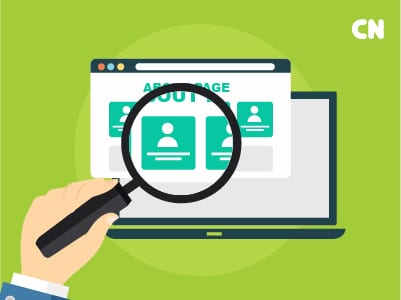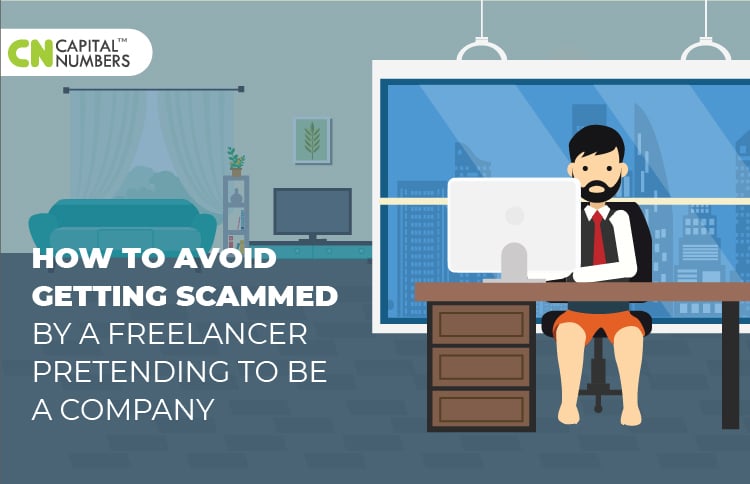How to Avoid Getting Scammed by A Freelancer Pretending to Be a Company
Table of Contents
Freelancer are Disguising Themselves as Companies To Boost Their Bottom Line… At Your Expense. Here’s How to Stop It.
The internet is great for meeting business partners, networking, and discovering new opportunities… but with all that opportunity comes great risk.
One not-so-recent trend is consists of freelance developers pretending to be companies, and taking advantage of you by raising prices and making promises they can’t deliver.
There’s nothing wrong with freelancers in specific situations.
But when you need to work with a company with the resources to complete a major job, and accidentally hire a freelancer, it drastically increases your risk.
The freelancer might perform freelance-level work but it will be done at a company-level pricing. In other words, you’ll get overcharged.
In order to meet project requirements, they might outsource some of your work to a subcontractor or partner you don’t know about… someone you haven’t vetted and have no control over. In most cases, you won’t even know your work is being done by someone else.
Further, they might take on projects for which they aren’t qualified. Remember, a freelancer is just one person working by themselves. They likely have no infrastructure or project management systems in place to support big projects. If something happens it’ll be very hard to recover your project.
Finally, the freelancer will probably not be held accountable. You can hold companies accountable for their faults, but a freelancer will just ghost. It’ll be very hard to convince them to finish or fix the project.
So, how can you identify a freelancer masquerading as a company? Just a few clues will let you in on the fact that someone is being dishonest with you.
Where Did You Find Them?

Unless they’ve been referred to you by a friend or associate whom you trust, proceed with caution. Anyone can do SEO or Google Adwords and get noticed through organic or paid traffic. When you land on their website, look around for non-stock images or people, names, or mission statements.
If they refuse to show their face or reveal their names, or if their contact information is vague, then you might immediately disqualify them
Second, if you found them on a job board, they’re a freelancer.
If you go onto Fiverr, almost every freelancer bills themselves as an agency or a company because they think it makes them more professional. Don’t be fooled. The same applies to other job boards. Anyone looking for work on a job board is probably just an individual. Agencies generally have the resources to do more targeted outbound and inbound marketing.
Think about it — how can you trust someone if you haven’t heard their voice or seen their face?
Ask

Once you get the interview with the company, make sure to ask what their situation is.
The fact is, in some cases, it might be okay to have your project done by a freelancer. They might be able to meet your needs without charging what a company might, and it might be a perfectly profitable working relationship.
In this case, the problem is not that you’re working with a freelancer— it’s that you might end up working with a dishonest freelancer who bills as a company. You might not see anything wrong with a freelancer trying to appear more professional by using a company name. If you ask, and they are honest about their status as a freelancer and explain why they’re masquerading as a company, that might not be a complete disqualification. It just depends on their portfolio and and what kind of prices they charge.
However, if you ask if they’re a company and they give you a vague answer or a non-answer, that might be a red flag. Listen to your gut. If you don’t trust them, you can choose to disqualify them or look for more information.
What’s On Their Website?

A website is an excellent indicator of the kind of service you might expect. Someone operating as a freelancer simply won’t have the time and funds to maintain the same kind of high-end web presence as a company.
The maintenance and appearance of their site will be your first clue, but the content on their site might provide more.
Look on their About page for a list of the employees or leadership. It’s very common for full-fledged agencies or companies to list their workers and provide some personalized details. Even if that’s not the case, they will still maintain a list of principals that set them apart from others.
It isn’t as common with freelancers.
You can also look on the privacy or legal sections of their website. (If they don’t have these, that’s a big red flag). A company will probably use its full name, and it will probably include an incorporation or similar signaling, like Inc., Corp., Corporation, Ltd., or LLC. Freelancers will not.
Conclusion
It’s getting easier and easier for freelancers to pretend to be companies. While freelancers do have their benefits, the issue arises when they provide freelance-level work and hours, but bill you company rates.
Plus, if someone presents themselves dishonestly, do you really want to do business with them?
The best way to avoid being scammed is to trust recommendations by friends, coworkers, or associates who have done business with the company you want to hire. If that’s not an option, be sure to examine their web presence more closely.
Dead giveaways someone isn’t being honest with you:
- They don’t have a well maintained web presence
- They don’t reveal faces or names
- Their about page doesn’t indicate that they are a company
Again, this is not to disqualify any one company or freelancer. You might choose to work with freelancers in specific situations. Just make sure you stay safe and don’t get taken advantage of.















